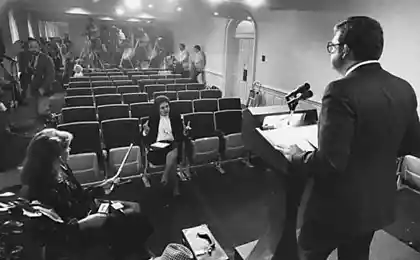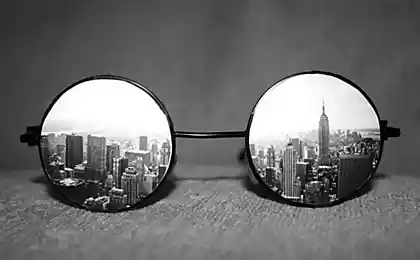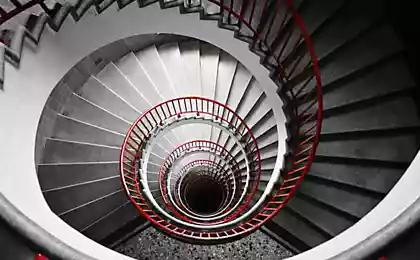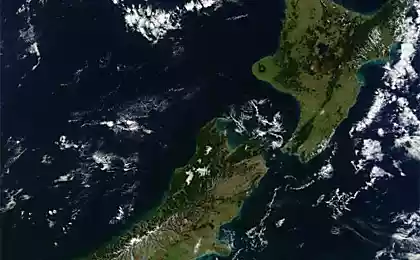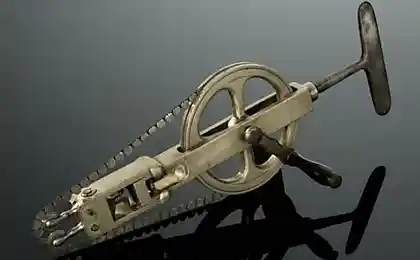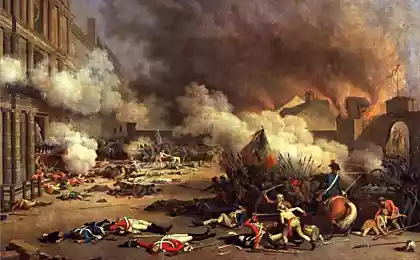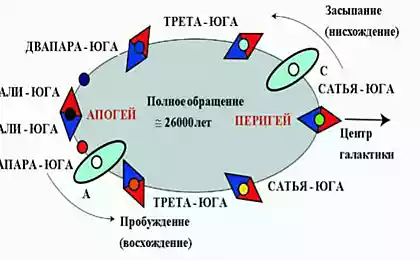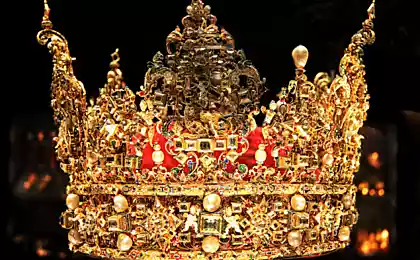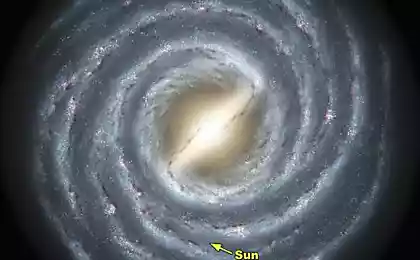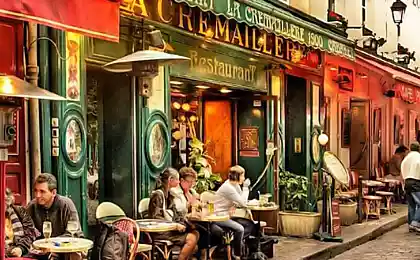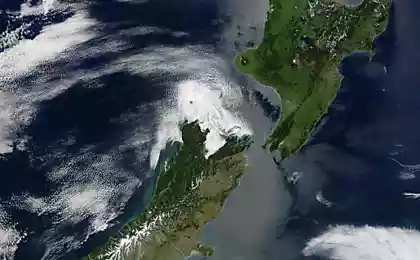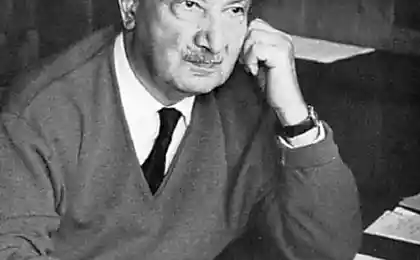487
Century migrant: Thomas Neil about the new era into which we are entering
Professor of philosophy Thomas nail, and author of the book "Theory of the Border" about what is common between modern civilization and the slave of the Ancient world why the dominant in the society towards migrants-soaked hypocrisy, what role was played by the media and that will demand from us a new era in which we are entering, the age of the migrant.
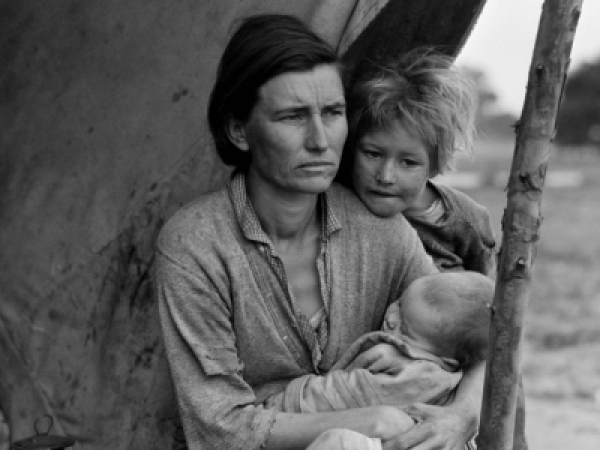
Photo: Florence Owens Thompson / © the Library of Congress.
Today there are over 1 billion regional and international migrants, and their number continues to grow: within 40 years it could double in connection with climate change. While the majority of migrants are not often cross regional or international boundaries, ordinary people change places of residence and work often go to work further and longer. This increased mobility affects us all. Perhaps this should be recognized as the defining feature of our era: the 21st century will be the century of the migrant.
In order to manage the mobility and control it, the world acquires more and more boundaries. Only in the last 20 years, especially after the terrorist attacks of 11 September 2001 in the USA, hundreds of new borders have appeared around the world: miles of new fences with barbed wire and concrete walls, numerous overseas detention centres, databases, biometric passports and checkpoints in schools, airports, and along various roads around the world. All evidence of serious concern of the authorities to control the movement of migrants across borders.
However, this concern runs through the whole history of Western civilization. Indeed, the constant expansion of civilization needs the same constant displacement of migrants. It includes:
This is the age of the migrant because the return of the methods described just now for the first time makes clear that the migrant has always been an important social figure. In other words, migrants are not marginal or unusual, as they are often perceived as a significant lever with which all hitherto existing society has preserved its stability and expanded its influence. Territorial community, the state, legal system and economy — all needed social expulsion of migrants to expand. The recent explosion of mobility demands that we rethink the political history from the point of view of migrants.
Let's take an example from ancient times: the barbarians (second only to the nomads of the main historical name for migrants). In antiquity, the dominant social form of state in Europe would have been impossible without the mass expulsion or politically illegal deprivation of ownership rights of a vast number of barbarian slaves.
They were abducted from the Middle East and the Mediterranean, used as workers, soldiers and servants, to the growing ruling class could live in luxury under the protection of the city walls. Romanticized classical worlds of Greece and Rome were built and maintained by slaves and migrants, "barbarians", which Aristotle defined as a group characterized by a fundamental mobility and a natural inability to political actions, speeches and associations.
Some of these ancient techniques (and their rationale) is still valid today. Migrants in the US and Europe, with or without documents, to support entire sectors of economic and social life, which will be destroyed without them. At the same time, these migrants remain largely depoliticized compared to the citizens who support their work, often due to the lack or incompleteness of their status. Just as the Greeks and Romans were capable of an enormous military, political and cultural expansion only if the political expulsion or cheap and casual migrant labour, in the same way things stand now in America and Europe.
If this analogy seems ridiculous, just look at how migrants were described in the media. The rhetoric is equally strong boundary wall, as construction boom. In the US, people like Samuel Huntington and Patrick Buchanan, worried about "the invasion of the Mexican immigrant" to "American civilization."
In the UK The Guardian published an editorial about the crisis in Europe, which ended with a description of "frighteningly poor" refugees who "destroy the gate to Europe." So The Guardian makes direct historical reference to the barbarian invasion of Rome. French politician Martine Le Pen as one of the contenders for the presidency, said at a rally in 2015 that "this migration will be the same as the barbarian invasion of the fourth century, and the consequences will be the same."
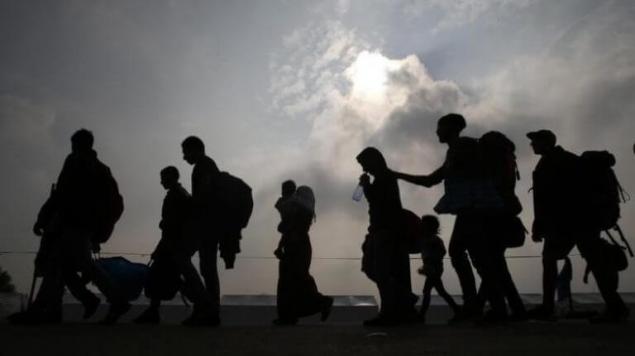
Even the President of the European Council Donald Tusk compared the recent flows of refugees from the "dangerous waters" and added military metaphors, typical of Ancient Rome against the barbarians depoliticising: refugees are "the great tide", which "surged in Europe", creating "chaos" and should "stop and regulate".
"We are gradually witnessing the birth of new forms of political pressure, says Tusk, and some even call it a kind of new hybrid war, in which waves of migration have become a tool, a weapon against neighbors."
The new century will be the century of the migrant not only because of the huge scale of the phenomenon, but also because the asymmetry between citizens and migrants finally reached its historical limit. The prospects of any structural improvements in this situation it is hard to imagine, but the alternative does not exclude the occurrence of historical precedents.
The universe doesn't care – do you fear or dream...
Let go of the old!
Before taking any specific decisions you need to make the process of political decision-making open to all who are affected by the proposed changes, regardless of their status. This is the only path forward, on the long historical path to justice for migrants and to social equality for all.published
Source: "We are entering a new epoch: the century of the migrant"/ Aeon.
Source: monocler.ru/vek-migranta/

Photo: Florence Owens Thompson / © the Library of Congress.
Today there are over 1 billion regional and international migrants, and their number continues to grow: within 40 years it could double in connection with climate change. While the majority of migrants are not often cross regional or international boundaries, ordinary people change places of residence and work often go to work further and longer. This increased mobility affects us all. Perhaps this should be recognized as the defining feature of our era: the 21st century will be the century of the migrant.
In order to manage the mobility and control it, the world acquires more and more boundaries. Only in the last 20 years, especially after the terrorist attacks of 11 September 2001 in the USA, hundreds of new borders have appeared around the world: miles of new fences with barbed wire and concrete walls, numerous overseas detention centres, databases, biometric passports and checkpoints in schools, airports, and along various roads around the world. All evidence of serious concern of the authorities to control the movement of migrants across borders.
However, this concern runs through the whole history of Western civilization. Indeed, the constant expansion of civilization needs the same constant displacement of migrants. It includes:
- territorial methods of eviction of people from their land new lines of fences (invented in the Neolithic period);
- political methods of restriction/deprivation of the right to free movement and the creation of new barriers, so as not to let strangers (invented during the ancient period and put into operation in Egypt, Greece and Rome);
- legal methods of criminalization and detention in cells (invented during the European middle ages);
- economic methods of unemployment and expropriation during inspections in an endless series of checkpoints (an innovation of the modern era).
This is the age of the migrant because the return of the methods described just now for the first time makes clear that the migrant has always been an important social figure. In other words, migrants are not marginal or unusual, as they are often perceived as a significant lever with which all hitherto existing society has preserved its stability and expanded its influence. Territorial community, the state, legal system and economy — all needed social expulsion of migrants to expand. The recent explosion of mobility demands that we rethink the political history from the point of view of migrants.
Let's take an example from ancient times: the barbarians (second only to the nomads of the main historical name for migrants). In antiquity, the dominant social form of state in Europe would have been impossible without the mass expulsion or politically illegal deprivation of ownership rights of a vast number of barbarian slaves.
They were abducted from the Middle East and the Mediterranean, used as workers, soldiers and servants, to the growing ruling class could live in luxury under the protection of the city walls. Romanticized classical worlds of Greece and Rome were built and maintained by slaves and migrants, "barbarians", which Aristotle defined as a group characterized by a fundamental mobility and a natural inability to political actions, speeches and associations.
Some of these ancient techniques (and their rationale) is still valid today. Migrants in the US and Europe, with or without documents, to support entire sectors of economic and social life, which will be destroyed without them. At the same time, these migrants remain largely depoliticized compared to the citizens who support their work, often due to the lack or incompleteness of their status. Just as the Greeks and Romans were capable of an enormous military, political and cultural expansion only if the political expulsion or cheap and casual migrant labour, in the same way things stand now in America and Europe.
If this analogy seems ridiculous, just look at how migrants were described in the media. The rhetoric is equally strong boundary wall, as construction boom. In the US, people like Samuel Huntington and Patrick Buchanan, worried about "the invasion of the Mexican immigrant" to "American civilization."
In the UK The Guardian published an editorial about the crisis in Europe, which ended with a description of "frighteningly poor" refugees who "destroy the gate to Europe." So The Guardian makes direct historical reference to the barbarian invasion of Rome. French politician Martine Le Pen as one of the contenders for the presidency, said at a rally in 2015 that "this migration will be the same as the barbarian invasion of the fourth century, and the consequences will be the same."

Even the President of the European Council Donald Tusk compared the recent flows of refugees from the "dangerous waters" and added military metaphors, typical of Ancient Rome against the barbarians depoliticising: refugees are "the great tide", which "surged in Europe", creating "chaos" and should "stop and regulate".
"We are gradually witnessing the birth of new forms of political pressure, says Tusk, and some even call it a kind of new hybrid war, in which waves of migration have become a tool, a weapon against neighbors."
The new century will be the century of the migrant not only because of the huge scale of the phenomenon, but also because the asymmetry between citizens and migrants finally reached its historical limit. The prospects of any structural improvements in this situation it is hard to imagine, but the alternative does not exclude the occurrence of historical precedents.
The universe doesn't care – do you fear or dream...
Let go of the old!
Before taking any specific decisions you need to make the process of political decision-making open to all who are affected by the proposed changes, regardless of their status. This is the only path forward, on the long historical path to justice for migrants and to social equality for all.published
Source: "We are entering a new epoch: the century of the migrant"/ Aeon.
Source: monocler.ru/vek-migranta/
